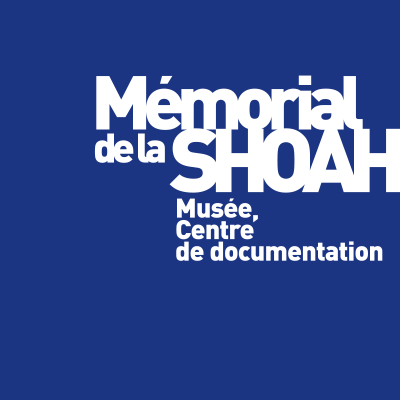Discover the Shoah Memorial from your home
The health crisis we are going through does not allow us to carry out our fundamental missions for the moment, as schools and all our spaces are closed to the public.
Nevertheless, we want to stay in touch with you during these difficult times. All our teams are mobilized to continue transmitting information and content, despite the constraints we are subject to.
On social networks, we will thus offer you a virtual walk through our permanent and temporary collections, invite you to discover or re-discover some of our resources, including archival documents, historical events, to listen to some of our conferences as well as survivors' testimonies.
Our online resources
Wander through our permanent and temporary exhibitions
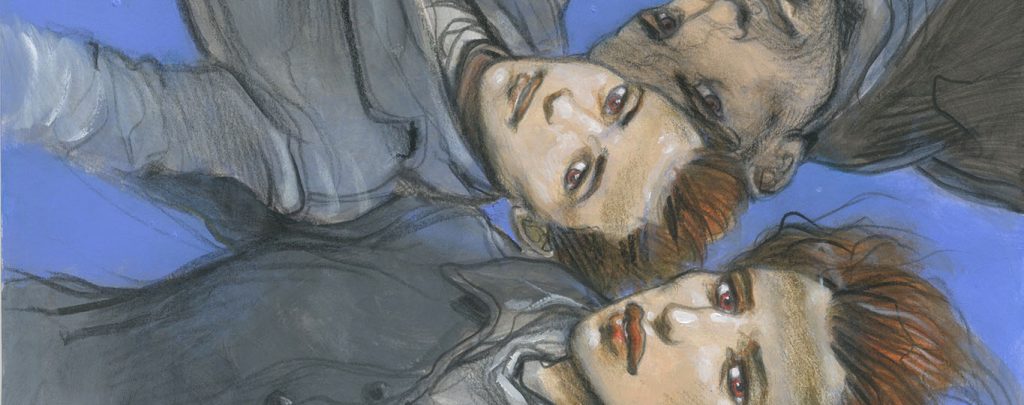
The Shoah Memorial Museum offers a permanent exhibition: a chronological and thematic journey consisting of twelve sequences that traces the history of the Jews of France during the Holocaust. This exhibition, based on the archives of the Documentation Centre, proposes a back-and-forth between individual history and collective history.
In addition to this permanent exhibition, the museum presents each year temporary exhibitions that draw their themes from history, art and literature. They are open windows on the fate of the Jews in the other countries of Europe but also on the other genocides of the 20th century.
We offer you a virtual tour through our permanent and temporary exhibitions, current and past, through exhibition spaces and archive documents:
The voice of witnesses
Shoah and comic strip
Béate and Serge Klarsfeld
The Art Market under occupation
Go behind the scenes of the Memorial
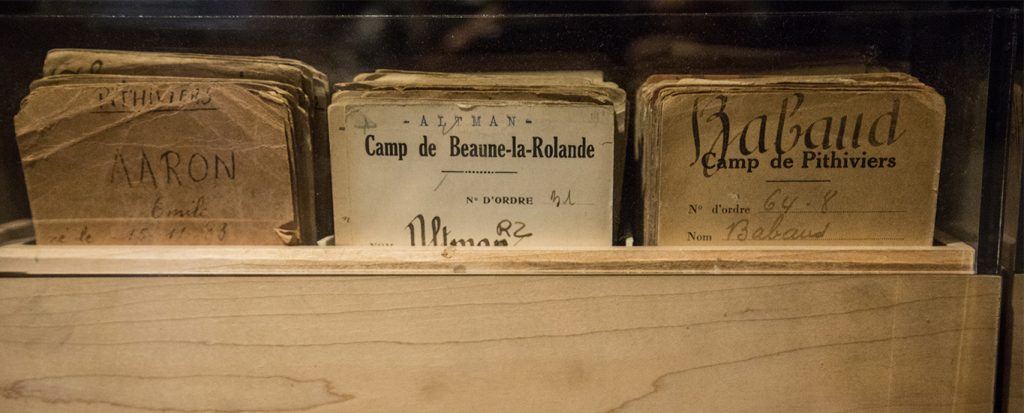
The Shoah Memorial finds its origin during the war, with the creation in clandestinity of an archive fund aimed at gathering evidence of the persecution of the Jews. The Center for Contemporary Jewish Documentation later doubles as the Memorial of the Unknown Jewish Martyr.
We will travel together through time to rediscover the Memorial, from its beginnings to today.
Relive exceptional encounters in video
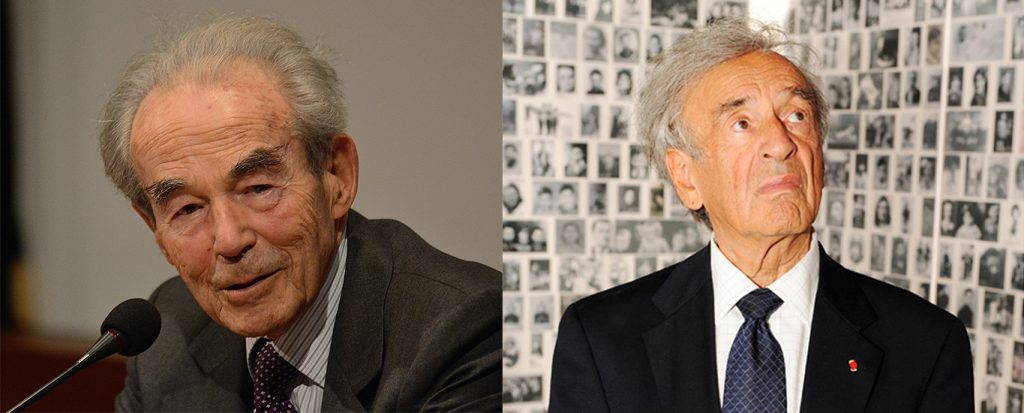
We invite you to relive exceptional testimonies, conferences and meetings in video on our YouTube channel:
Elie Wiesel, Robert Badinter, Jorge Semprùn, Claude Lanzman, Serge Klarsfeld, Ginette Kolinka, Marceline Loridan-Ivens...
Dive into our archives

The Shoah Memorial houses a documentation centre divided into three departments: archives, library and photo library. This archive, made up of more than one million documents, photos, books, archival films, posters, postcards and even objects is open to everyone, from the researcher to the student, who can come to consult archives on site in a unique space for information and transmission of knowledge about the Holocaust and, in particular, about the history of the Jews of France during the Second World War.
Regularly enriched since the creation of the Centre for Contemporary Jewish Documentation in 1943 by donations and acquisitions of documents from witnesses of the Shoah, it constitutes a unique archive and an instrument of first order to study the destruction of the Jews of Europe. We will share a few pieces with you, and invite you to dive into our online resources.
EXPLORize our educational resources
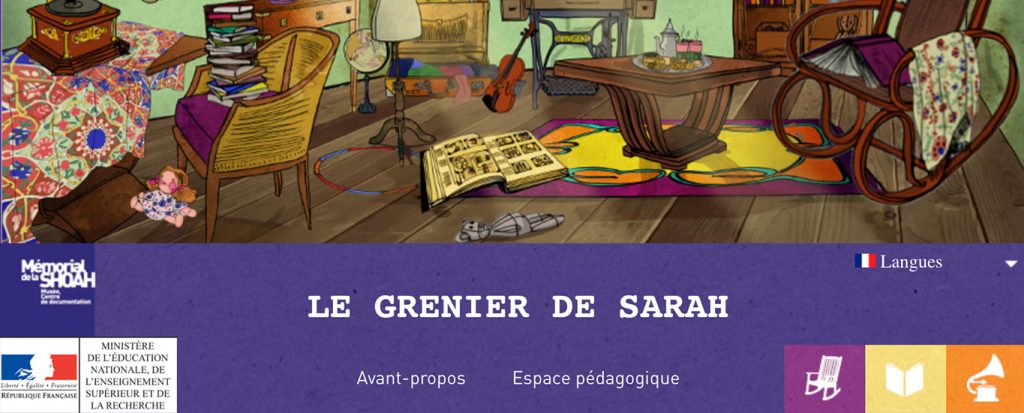
The Shoah Memorial has gathered and selected resources of different kinds for parents, teachers and educators eager to introduce young people to the history of the Holocaust or to deepen with their students a particular aspect of the period encompassing the Second World War and the enterprise of persecution and destruction of the Jews of Europe:
Tools for teaching
Sarah’s attic, a site of introduction to the history of the Shoah designed for primary school children, and more particularly for 8-12 years old, in respect of the sensitivity of the young visitor.
Consult our publications
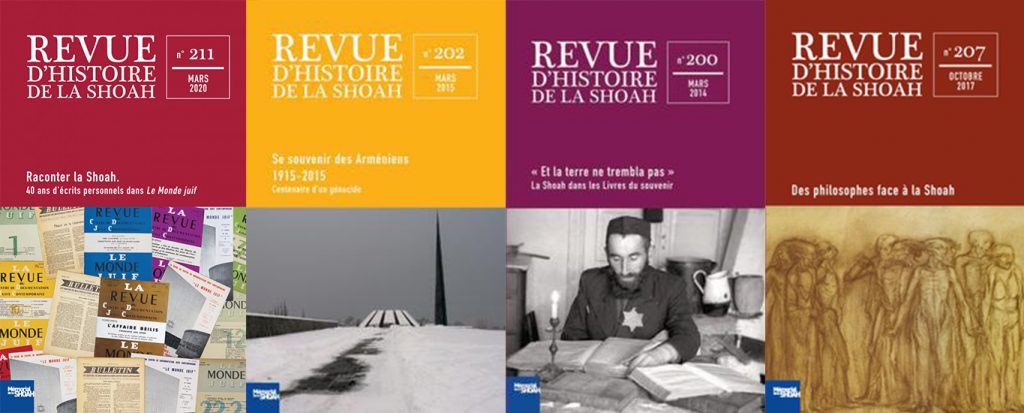
The publication of the Revue d'histoire de la Shoah constitutes the emerging part of the research activity within the Memorial. Created in 1946, the Review deals with the history of the genocide of the Jews by Hitler’s Germany and the reflection it provokes in different cultural fields. She also opens her study to the other genocides of the 20th century.
The RHS is freely accessible online on Cairn.info for issues published between 2005 and 2016.
We will be delighted to meet you regularly on social networks.
The Shoah Memorial team wishes you much courage in this period, as well as good health for you and your family.
#MemorialChezVous
